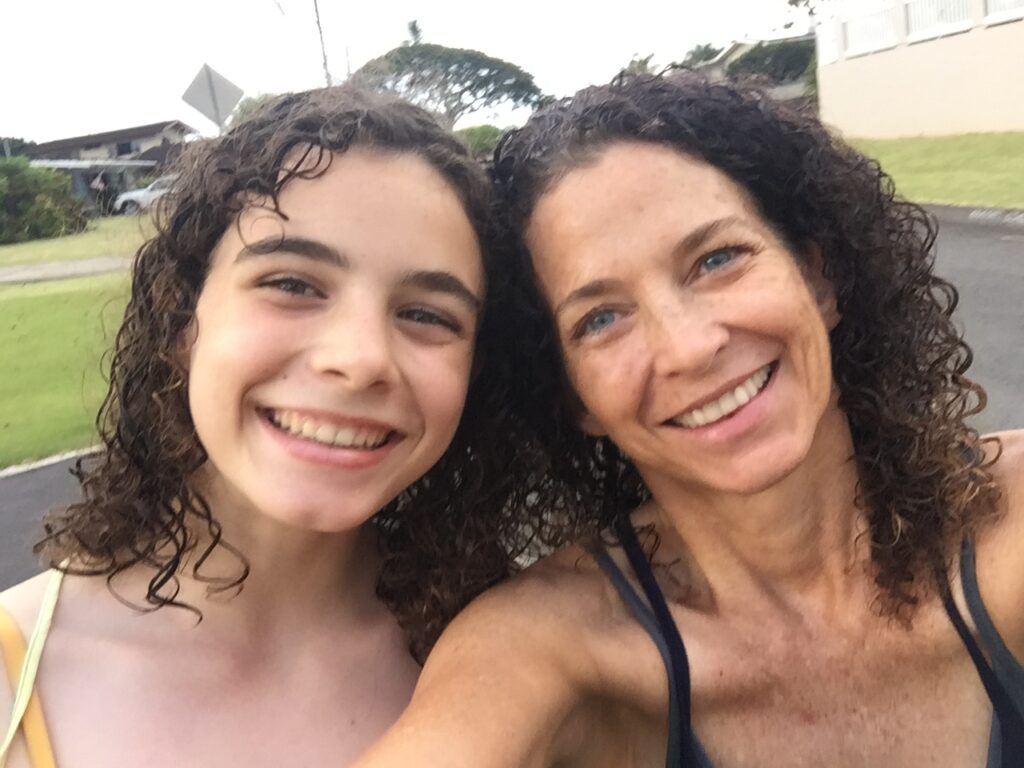

In this edition of the Wellness Q&A Series Beth McGroarty, VP, Research & Forecasting, Global Wellness Institute asks:
What has the coronavirus revealed about our culture around death and dying? What is most broken and needs fixing?
What tangible actions can people take to deal with all this fear, grief and dying—to put them in a better place mentally?
How is digital disrupting the death and funeral industry?
Q&A with Dr. Candi Cann, Associate Professor of Religion, Baylor University, and Liz Eddy, CEO and Co-Founder of Lantern.
Dr. Candi Cann and Liz Eddy are both experts on death and dying and members of the GWI’s Dying Well Initiative. Both work to make industries, organizations, conversations and cultural practices around death more healthy and humane.

Dr. Cann, associate professor in religion at Baylor University, researches death and dying, with her current work focused on diversity in death and the intersection of death and technology around the world. She received her AM and PhD in Comparative Religion from Harvard University.

Liz Eddy is CEO and co-founder of Lantern, a public benefit corporation that provides a single source of guidance for navigating life before and after a death. She has always built companies that tackle taboo topics, founding her first social venture at age 15 focused on dating abuse and domestic violence education in schools. She has a Master of Science from Columbia University and is a World Economic Forum Global Shaper.
VP, Research & Forecasting, GWI, Beth McGroarty: 125 million cases…561,000 deaths…our world has been hit with so much grief, trauma and death. What has COVID-19, that great exposer of social ills, revealed about our culture around death and dying? Any big shifts? What is broken and most needs fixing?
LIZ EDDY: The most profound shift I’ve witnessed is the deeper connection we’ve developed to our own mortality. This experience has given everyone a sense of what grief feels like, even if they haven’t lost someone close to them. It’s my hope that this collective grief will lead to more empathy for those grieving in the future and that we gain a deeper understanding of the inequities in how we die and grieve.
CANDI CANN: Is there widespread grief and trauma? Absolutely. But COVID-19 has radically exposed how some people have much more privilege than others. It’s hitting people of color and people from the lower classes far harder: They’re getting sick and dying in dramatically higher numbers because of numerous systemic issues, including unequal access to healthcare. The coronavirus crisis teaches us we have an incredibly long way to go with privilege in this society. We have not paid attention to this. We must.
So, while this is a universally traumatic experience, we need to grasp what it’s like for communities that experience profound fear and trauma every day: black people that are afraid every time a police car pulls up behind them or are simply afraid to go jogging. What’s unique to this moment is that for many people, especially the privileged, this is the first time that they’ve experienced such intense fear and trauma.
Liz Eddy: COVID-19 has also exposed the gross limitations that have been set on bereavement leave. Three days of bereavement are not enough. Period. You can see governments acknowledging this now: New York state recently put in place mandatory, BUT temporary, bereavement leave policies.
See Lantern’s great, new COVID resources, including advice on grieving in the workplace.
Candi Cann: Many countries have bereavement policies at the federal or state level, but many people aren’t aware that the US doesn’t have any such thing: It all depends on the company you work for, which means there are class inequities. Salaried employees typically get between three days and a week to mourn, but only for a very close family member. Hourly workers generally don’t get any time off. Think of all the quote-unquote “essential” workers (and I recently read a great statement from one, saying, “We’re not essential, we’re expendable”) and how hard it is for them to take time to make funeral arrangements or come together to grieve. I agree: We have a fundamental need to have better bereavement policies, especially with so many people dying.
Liz Eddy: A third issue the pandemic has exposed is the huge, mind-boggling lack of training around discussing end of life in the healthcare system. 68% of physicians reported they had not received training in how to have end of life conversations.
During COVID-19, clinicians are handling dying and death head-on, without the buffer of family members being there. It’s such a challenge for healthcare professionals on the frontlines that we’ve created a short video training, pulling from existing evidence-based practices. Dr. Atul Gawande has done incredible work around this, but healthcare workers don’t have time now to read a long book or research paper right now. So, we boiled down the key info into this two-minute video.
GWI: What tangible actions can people take to deal with all this fear, grief, sickness and dying—to put them in a better place mentally?
Liz Eddy: At Lantern, we help people navigate life before and after a death. We know younger generations are far more open to confronting mortality—just look at the death positive movement. We’ve seen this trend coming for a decade. But, during COVID-19, so many more people are taking action. We saw 120% growth in our end-of-life planning services when COVID-19 began in the US—mostly for people under age 45.
Candi Cann: The crucial advice: The more prepared you are to die, and the more preparations you have made regarding your death—from your will to your advanced directives to your funeral—the better you will feel and the less afraid and anxious you will be.
Liz Eddy: Also, there is a huge misconception that having a will is having an end-of-life plan. But there are so many other aspects to consider: outlining your end-of-life wishes, your advanced care directives, guardianship (if you have kids), how you want your funeral to be, your digital legacy, password storage, the location of your documents, and documenting your history and legacy. Just to name a few.
Candi Cann: The legacy piece is so important. My mom died when I was young. One thing I’ve done every year is to write my daughter a letter so that if I die, she would have these records of how much I loved her and how much joy she has brought me each and every year.
Liz Eddy: It is the most beautiful thing you can leave behind. Having a story, memory, or recorded voice of a person you love after they’re gone is beyond meaningful.
Candi Cann: Grieving is so difficult under COVID-19, with social distancing protocols and issues around end-of-life and death care. Navigating the complex restrictions—and the sheer volume of loss—is overwhelming. How can you comfort a person when you can’t be present? How do you mark someone’s passing when you can’t hold a traditional funeral? To help people develop new rituals to honor those who die during the pandemic, we assembled a group of over 70 doctors, nurses, scholars, grief therapists, hospice workers, chaplains, etc. (from around the world) to create the COVIDPaper, which offers lots of tools and tips to grieve in this strange time. It’s being shared widely and getting a great reception.
Liz Eddy: Another action to take: Create a culture within your home that makes it ok and normal to talk about death. When I was growing up, my mom was always imparting, in casual ways, how she wanted her death to be, what songs to play, etc. I knew her end-of-life wishes without it having to be this huge, terrifying conversation. If you avoid this for a long time and start having these conversations with your parents or child suddenly, it feels like you think that you or they are going to die soon or that you’re trying to get something from them. Having a culture at home where you speak about death saves a lot of heartache and is a huge gift you can give to your family.
GWI: Just how hard is it for children under COVID-19, hearing about how their parents could die, even how they could die?
Liz Eddy: People make a mistake in thinking that kids aren’t clued into mortality. Even if they haven’t lost a family member, they’re heavily exposed: It’s all over the TV shows they watch; their icons, like Kobe Bryant, die…
Candi Cann: With the coronavirus, my 13-year-old daughter is having real anxiety about this. I’m a single parent and her sole caregiver, so I have had conversations with her: Who do you want to live with if I get sick or die? I explained that I set up a trust for her. It has really calmed her anxiety, knowing there’s a plan. Parents need to realize that kids are very dialed-in on death. Talk to them openly.

GWI: Almost every industry is seeing a massive migration to digital platforms under COVID-19. People have largely lost that face-to-face support in grieving and death—but how are online solutions helping? Will we see a more “digital” death industry—more online solutions for “dying well”—post-COVID?
Liz Eddy: One big shift has been the rise in virtual funerals and companies moving into virtual funeral planning. They’re working hard to create experiences as close to an actual funeral/memorial service: not just a meet-and-greet between family members but actually live-streaming the service and burial.
You hear two sides. One: Grieving without being able to touch another person is heartbreaking, and I think there will be a lot of research coming out on the impact of grief over time without being able to sit, laugh and cry with family and friends—to go through photos, to share meals. But the flip, positive side is how virtual capabilities are (and will continue to) allow communities to come together that previously weren’t able to: friends and family that live far away, older relatives that can’t travel, people that are sick or hospitalized. They can join the services now in a way they couldn’t before. My company is in the digital innovation end-of-life space, and COVID-19 has carved out a much bigger place for us in what has been a historically offline industry.
Candi Cann: If you have Internet access, there are fantastic technologies and tools rising to create new communities for the sick, elderly and dying (and get beyond the “dying alone” crisis) that we simply never had before. If someone is in a nursing home or alone at home, set up a smart speaker, and you can communicate without needing the constant intervention of someone there. I tell my smart speaker to call my stepmom, and I pop right into her home.
But we must acknowledge the tech divide. People that are very comfortable with technology have made this pandemic transition rather seamlessly, and they’re delighted that so many more people are finally embracing new technologies. Unfortunately, the coronavirus has hit older and poorer populations much harder—populations with less access to all these digital solutions and that rely on support from now-closed traditional churches. I think people can jump so far ahead with technology that they forget the really low-tech ways that we can connect with people: You can make phone calls, and you can write letters and put a stamp on them.
I think that the more successful organizations and practices that support people in death and grieving—whether churches or the funeral industry—have a hybrid digital future. I now attend online church services every Sunday (I love it, I’m in my pajamas, drinking coffee). The amazing thing: A lot of college students that moved away are suddenly attending virtually, so we have a whole new church membership. Our church is now thinking of holding in-person services and live streaming them because they realize we can reach this community that misses us. In the funeral industry, many of the mom-and-pop shops lag on technology. COVID-19 has forced them to get on board or lose business. I see this as a real positive.
One practical note on virtual funerals: Someone recently made a brilliant point; if you’re holding an online memorial, make sure you appoint someone else to deal with the tech issues. You can’t grieve and handle tech issues at the same time. It’s really a whole new job that has emerged.
GWI: Any last words of advice for people on how to survive this difficult time?
Candi Cann: Around the world, some of us have been in this for four months, some six—and we’re in it for another year or so. People are understandably so focused on the “dying part,” but we need to figure out how to live well even in the face of all this sickness and dying. Yes, we may be in lockdown or scared to return to our jobs, but we’re still alive. Embrace life; focus on living.
We want to hear from you
What has COVID-19 revealed about our culture around death and dying? How do you think people can deal with fear, grief and dying?
























































The following excerpt from my new book may be of interest to this interview and the latest. I could not find the “Leave a Reply” space related to that interview on this topic of death and dying viewed from a (REAL) wellness perspective. This essay is one of the final weeks in the 52 weeks of essays in my book, “REAL Wellness: An Alternative to Doctors, Drugs, Disease and Religion.”
Week 51 — Deathday: An Element of Wellness Worth Pondering
INTRODUCTION
The older we get, the less enthusiastic we are about birthdays, with the usual birthday celebrations to endure, including the Happy Birthday song, painful merriment, a cake and candles, kidding about your age and so on. Birthdays remind us how very, very old we’re becoming which, if we’re fortunate, can be pretty darn old. While lasting longer than most is something of an achievement, getting to old age (i.e., over 39) also requires more than a little dumb luck (i.e., random chance), plus favorable genetics.
We only get so many birthdays, so while everybody is singing Happy Birthday, you might be forgiven for wondering–will there be another? After all, as Herb Silverman and many others have noted, human life is a sexually transmitted disease with a 100 percent mortality rate.
Probably, but eventually there will be no more birthdays, at least not when you’re around to blow out the candles. When you’re no longer around, instead of birthday celebration, there will be a remembrance, a toast of sorts, to you on your deathday.
A deathday is somewhat the opposite of a birthday; nobody sings, Happy deathday to you, happy deathday to you, happy deathday dear ______, happy deathday to you. Singing about it might be inappropriate, a bit of a downer, even morbid, and probably not respectful. Your deathday will be more of a solemn occasion, a tribute. It’s the date of your demise.
The fact of deathday invites reflection about dying. Not many people use the term, but it’s a real word. Usually, only immediate family and close friends will remember and maybe talk about you on your deathday. However, there are
exceptions. I’m very much aware of two deathdays–July 21 and November 22. The former is Robert Green Ingersoll’s (in 1899), the latter JFK’s (in 1963). Most people anywhere near my age remember the assassinated president’s deathday, and recall exactly where they were around noon on that date.
THE LEADUP TO DEATHDAY
Your deathday only matters to those still living a year or possibly many years after you have shuffled off this mortal coil, as Shakespeare poetically put it (in Hamlet). What does matter is how you think about, prepare for and carry on during the time remaining before your deathday, particularly the relatively short stage when it’s clear the end is nigh. This is the most consequential period for thoughtful planning of the final juncture of life. The challenge is to connect an awareness of your imminent mortality and your commitment to quality of life, doing so with a conscious appreciation of the best interests of loved ones.
How you spend the last period of your existence affects not just you, but also your family, their resources, emotional health and everyone’s misery index. One goal should be to minimize losses and suffering in all three areas. You don’t want to wipe out or dramatically lower the value of what you can pass along to loved ones that could make their lives more comfortable and enjoyable; neither do you want them or yourself to endure emotional travails or avoidable anguish.
Without planning the period leading up to your departure, it is almost inevitable that, under normal circumstances, you and those closest to you will face unfortunate, unpleasant, costly and painful situations. These disharmonies could last for months, perhaps years. Consider ways to give grim conditions a pass, to the extent possible. The closing chapter of your sojourn on Earth should not diminish the preponderance of positivity that has marked your life. Resolve to plan and carry out strategies that will enable you to remain in charge of foreseeable challenging situations before they arise and run their customary course of gloom.
Most of us are quite pleased to put the dying process, as well as death, out of mind. However, a wellness lifestyle, a pattern of making conscious choices for a life graced with meaning, service, satisfaction and achievement, should include planning for the period somewhat close to one’s departure. The alternative is to deny or choose not to deal with significant realities, which usually results in delegating your responsibilities to others. Few others can deal with such contingencies as well as you.
COSTS MATTER
A 2019 article in the American Journal of Hospice and Palliative Care substantiated the self-evident fact that medical expenses incurred near the end of life are a major drain on resources for the Medicare program. Thus, it is not only family that deals with an unnecessarily extended period of suffering and medical experiments on your failing body, but the community and nation, as well. The most common estimates of the percentage of Medicare costs incurred by patients in the last year of life is 25 percent. (Source: Ian Duncan, et.al., Medicare Cost at End of Life, AJHPC, March 18, 2019.) The existence of experimental technologies, the quest for cures and the baleful role of religion’s opposition to physician-assisted dying constitute a toxic stew. Society has not found a way to facilitate or recognize humane approaches to end of life periods. It’s therefore ultimately up to us, which of course should be the case for all matters affecting our health and quality of life, throughout our lifetimes.
JACK KEVORKIAN, M.D.
I’m often asked, What do you think of Kevorkian? I consider him a hero, one who (like Jessica Mitford’s expose of funeral practices in the explosive 1963 best-seller, The American Way of Death) brought public awareness to the pre-deathday period of rapidly diminishing life–and paid a terrible price for doing so, owing the religious beliefs of crusading fundamentalist politicians.
The bottom line, practical question concerning the time from more-or-less normal life to the advent of premonitions of a falling curtain is this: How will you manage your journey to deathday?
Saroyan famously lamented: I know death is inevitable, but I was hoping an exception could be made in my case. None was made in his case, and none will be made in yours. Look on the bright side–it’s been great fun and you’ve had a wonderful ride. The end can’t be avoided, so take care of business and eliminate as many middle men and women as possible. Don’t buy into the apricot pit cures or alternative/complementary/or other holistic remedies, services or products founded on testimonials, claims of revelations or the varied fantasies of hope spun by shysters. Don’t believe the nonsense many purveyors of cures promote to the effect that the medical establishment, the pharmaceutical industry and/or Satan himself are keeping their proven cures and their wonder remedies off the market. Nearly all such claims and promises are as implausible and empty as the conspiracies of the lunatic Qanon rumor-mongers, and the religious nocturnal emission-worthy promises of eternal afterlives of bliss.
Kevorkian’s great contribution was to provoke reflection on the nature of dying. Many wellness-seekers have been stimulated to reflect on their last birthday. The debate around Kevorkian reminded us of something we’d rather put out of mind, namely, that we all have endings ahead, sooner than most would like to admit. I know, not a cheerful thought.
SUMMARY
If asked whom I’d choose for a companion to facilitate my wishes for the sunset pre-deathday period of diminishing capacities, I’d say, thanks anyway, but I’ll be just fine on my own. I certainly would not want teams of specialists testing this and removing that, or a priest, televangelist or a squad of resuscitation experts standing by. Nor would I want my darling wife, or precious daughter or son around. Instead, I’d arrange plenty of time with these most dearly loved people, and leave gracefully without fanfare, before they tired of my growing needs and complaints. (Yes, despite plans to smooth the way, I may not be able to pull everything off as planned.) Perhaps at the very end, I’ll arrange a few dancing girls, take a few psychedelic potions (which I never had use for during my ample years of what I considered were days of unusually high level wellness) and/or hire a few comedians. I suppose it will depend on my moods at the time.
If I believed in such things, I would certainly welcome a last-minute appearance from Satan with a Faustian proposition of some kind too good to refuse. Come to think of it, I might arrange that myself with a theater company nearby. Might as well set up the last laughs myself.
POSTSCRIPT BY ELAINE FINKELSTEIN, CARDIFF, WALES
Elaine L Finkelstein, PhD, is a clinical psychologist and a registered practitioner psychologist with the Health and Care Professions Council (HCPC), the regulatory body of practicing psychologists in the UK. Since the late 1990s, Elaine has devoted her time to end of life matters, addressing the needs of and caring for the dying, supporting families living through the anticipation of such a loss and helping those who are dealing with the loss of a loved one.
Hi Don–I have a few very positive comments about your essay. Richly deserved.
I have to say, I thoroughly enjoy the tone of this essay–you treat death as a matter of fact, which it is, and decidedly do not treat the end of life as an event to be feared–albeit that no one wants to die. Significantly, and I think this is something many people overlook, you also emphasizes that although some aspects about death and dying are out of our control, a number of aspects are not. These involve choices, and engaging with these choices can help a person to feel a little more reassured, a little more ‘in control’ at a time when many feel they have no control or have lost any semblance of control completely. Equally, the more one is willing to prepare for the end of life, the greater the chance of it feeling less overwhelming.
I think that seeing aging for what it is, stating the truth of a death day for all of us, and highlighting that (if you are lucky!) someone will miss you enough to ‘celebrate‘ your death day in the future, is an efficient way of doing two things. The first is that it is important to reflect on the end of our life before we die, to come to terms with it, to plan for it and, in the process, to prepare in a way that will assist our loved ones in every possible way when we are no longer around. The second is that you raise a very important issue of how we want to be remembered. There is no time like the present to make amends, forgive, love and be the best we can possibly be. Knowing how we want to be remembered can motivate us to be that best version of ourselves, now, even in the midst of so much change. It helps us to focus on what really matters. With my clients, I have often experienced just how coming to terms with death can be the catalyst for living life fully.
Don, I think it is a very positive step to raise assisted dying. Although it is a raging debate in many sectors it is a debate worth having, especially as certain states in the USA are now permitting it. The thinking and legalities are changing in countries on this side of the pond too. It is a very important consideration and, in my personal opinion, one that needs to be thought through by each of us. If it is a route one is wanting to take it, too, requires research and planning well in advance of necessity.
Finally, it is a great conclusion to share your personal thoughts about how you view your plans towards the end – and with good humor! Of course, you are perfectly entitled to change your plans but you have given it some headspace and that is what counts.
As you rightly suggest people, generally, would rather put dying and death on the shelf and leave it there. What you are doing is taking it off the shelf and asking them to look at it. I wish more people like you would raise it, especially as you strike a wonderful balance between gravitas and humor. Thank you for doing so.
Just as an aside – in terms of ‘practical preparation’ there are so many online options to help people now, some of which are free of charge. In the USA, I know that Five Wishes and Crossroads Palliative and Hospice Care are both worth a look.
Many thanks for thinking of me for comment and I wish you every success with your new publication.